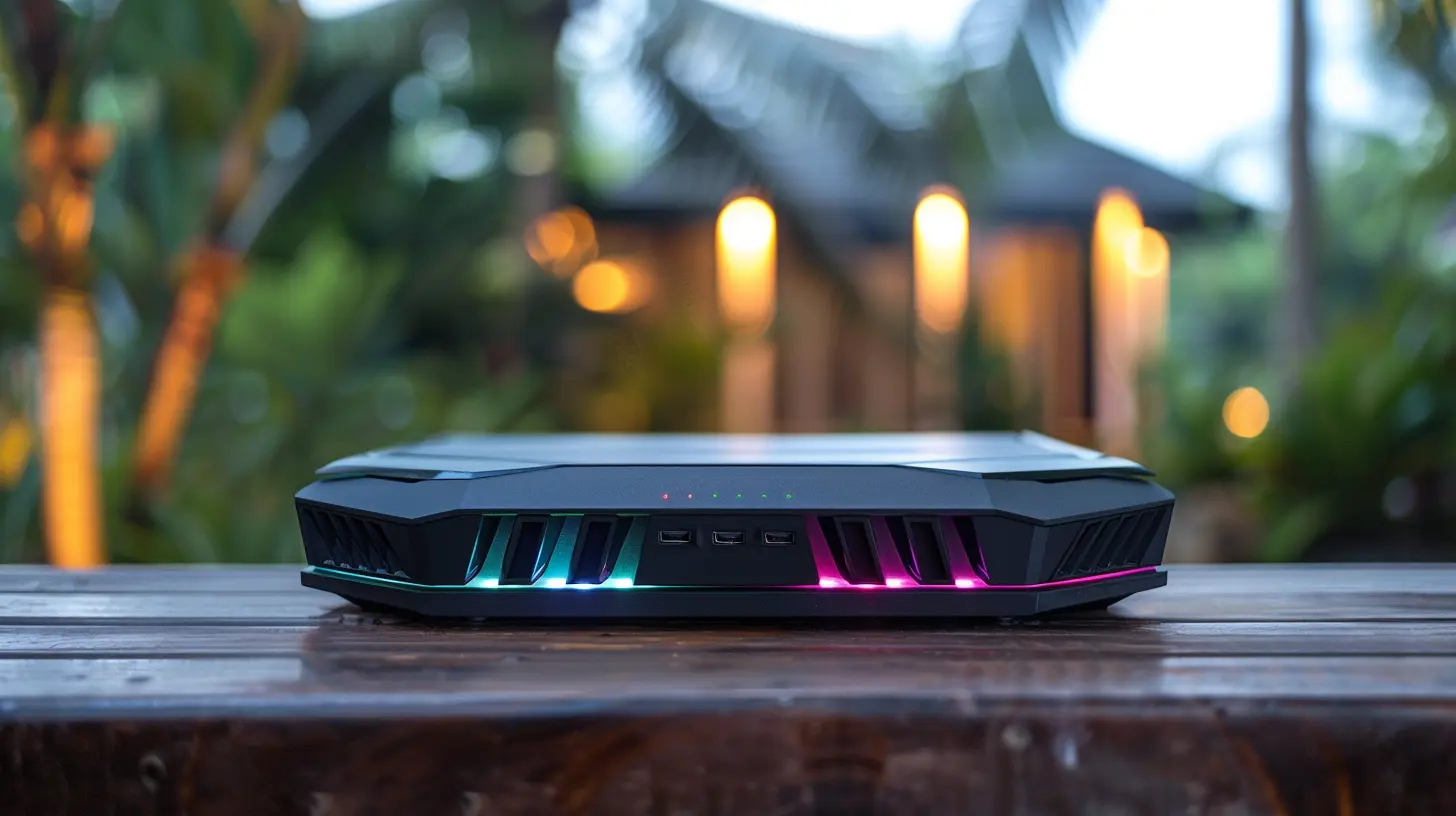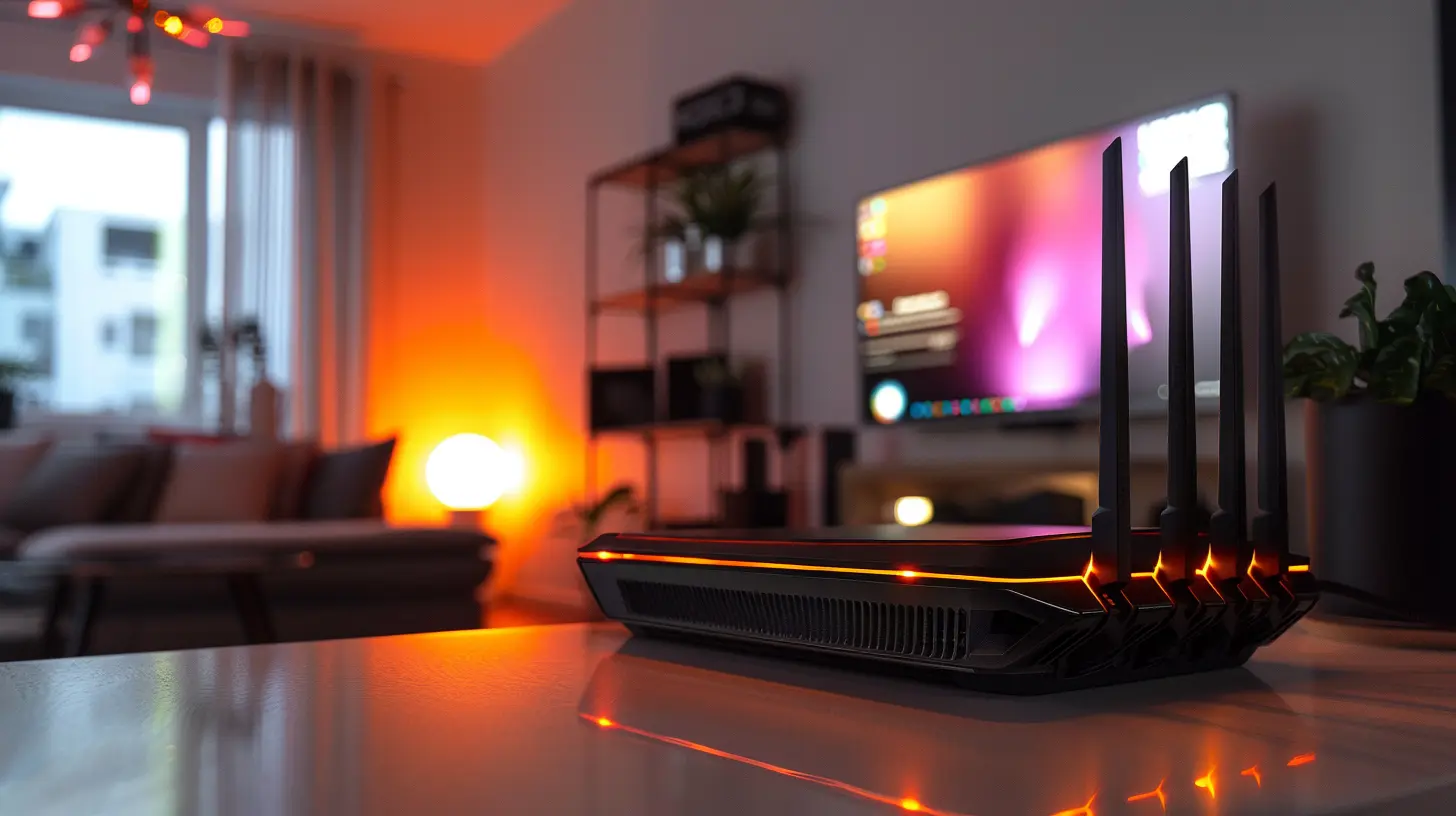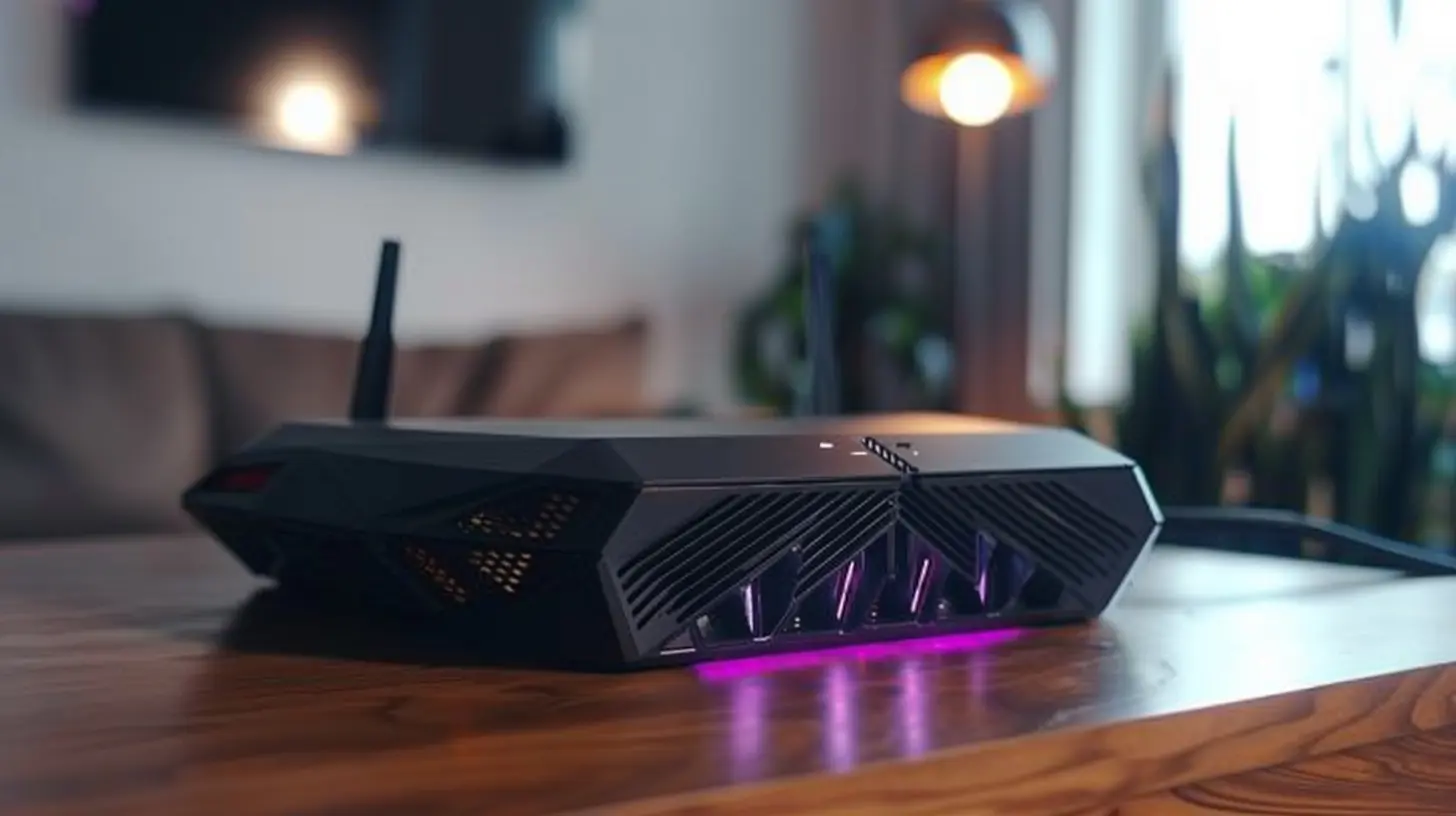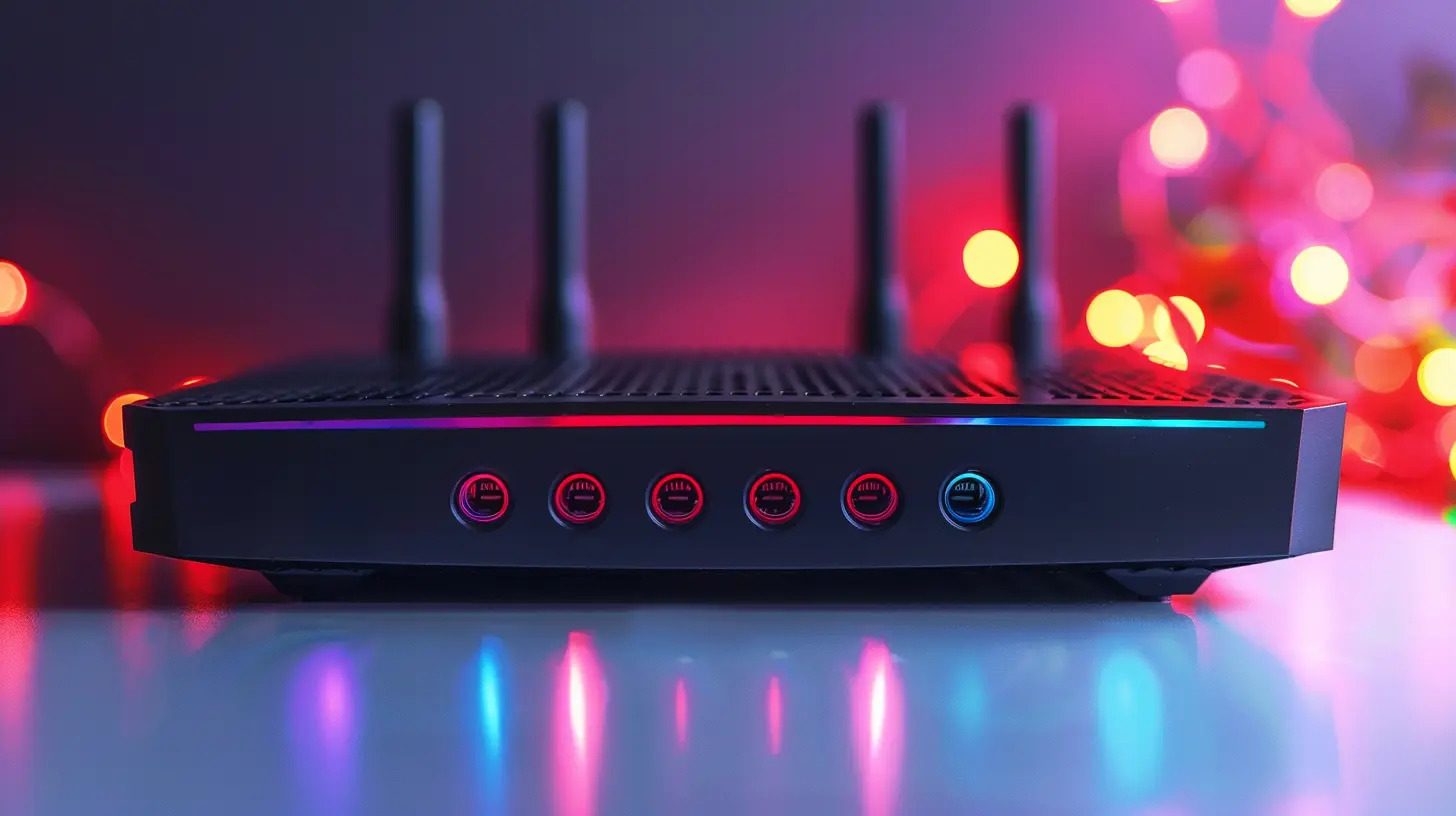What to Look for in a Gaming Router
6 October 2025
When it comes to gaming, your skill matters—no doubt. But so does your gear. And while most gamers focus on flashy keyboards, high-refresh-rate monitors, or beefy graphics cards, there’s one silent hero in the background: your router.
Yeah, that little box blinking in the corner? It might be the difference between victory and defeat.
So, what should you actually look for in a gaming router? What makes one router better than another for fragging foes or racing cars online? Let’s break it down, piece by piece.
Why Your Router Really Matters for Gaming
Let’s kick things off with a simple question: why even bother with a "gaming" router? Can't any old Wi-Fi box do the trick?Well, technically yes… but it’s kind of like asking if your mom’s minivan can win a Formula 1 race. It’ll get you around, but don’t expect world-class performance.
A gaming router is built with online performance in mind. That means faster connections, optimized data flow, and less lag—even when everyone in your house is streaming videos or downloading files while you're trying to clutch a ranked match.
Gaming routers prioritize your gaming data over other network traffic—think of it like getting the VIP lane on a highway while everyone else is stuck in traffic.
Okay, So What Should You Look For in a Gaming Router?
Here’s where the rubber meets the road. There’s no “one-size-fits-all” answer, but we’re going to cover all the goodies you’ll want in a solid gaming router.1. Low Latency Support
Let’s be real—lag is the ultimate villain in online gaming. It’s what turns a sure headshot into a frustrating miss. The best gaming routers are designed to reduce latency, which means the time it takes for data to travel between your device and the game server.Look for routers with features like QoS (Quality of Service) and traffic prioritization—these ensure your game data always gets the fast lane access it needs.
> Pro tip: Some models even come with “Gaming Mode” buttons or apps that automatically prioritize gaming traffic. One tap and boom—you’re in beast mode.
2. Dual-Band or Tri-Band Connectivity
Let’s talk lanes. Imagine your internet as a freeway. Now, imagine two or three extra lanes opening up just for you—that’s what dual-band and tri-band routers offer.Most modern routers have at least two bands:
- 2.4 GHz – Wider range, but slower speeds.
- 5 GHz – Faster speed, but shorter range.
Tri-band routers throw in another 5 GHz band, or sometimes even a 6 GHz one (hello Wi-Fi 6E!), which can really help when multiple devices are sucking up bandwidth.
> If you game in a busy household, with smart TVs, phones, tablets, and laptops all vying for internet love, having those extra bands is like getting your own private gaming lane.
3. Wi-Fi Standards: Go for Wi-Fi 6 or Higher
Some routers are still stuck in the past. Don’t be like them. Look for routers that support Wi-Fi 6 (802.11ax) or even Wi-Fi 6E, which is the new shiny thing featuring the 6 GHz band for ultra-low interference.Here’s why this matters:
- Faster speeds
- Improved efficiency during high-traffic situations
- Better battery life for connected mobile devices
Seriously, Wi-Fi 6 is like going from a rusty tricycle to a Tesla. It’s that big of a jump.
4. Quality of Service (QoS) Features
QoS is your router’s ability to say, “Hey, this packet is from a game—let’s prioritize it!”Gaming routers with smart QoS let you manually or automatically assign more bandwidth to gaming devices. That means less buffering, no rubberbanding, and more accurate in-game responses.
You can even set profiles or rules. For example, give your Xbox top priority during evening hours or make sure your PC always stays in pole position.
> It’s kind of like having a traffic cop in your router, waving your game data through traffic jams.
5. Wired Ethernet Ports (Yes, They Still Matter)
Yes, we live in the age of wireless. But when it comes to competitive gaming, nothing beats a good old-fashioned Ethernet cable.A solid gaming router should have multiple Gigabit Ethernet ports—at least four—and ideally, support multi-gig speeds. Some high-end routers even offer 2.5G or 10G Ethernet ports. That’s useful if you want to plug your gaming PC or console directly into the router for zero-lag performance.
> Remember: Wired always wins when milliseconds count.
6. Gaming Traffic Optimization Tools
Some gaming routers really go above and beyond. They come with optimization tools built into their software:- Geo-Filtering: Choose servers closer to home to minimize ping.
- Ping Heatmaps: Visualize the best servers to connect with.
- Gaming VPNs: Secure, yet optimized connections for online play.
- Real-Time Monitoring: Track ping, download/upload speeds, and latency in real time.
These features are especially useful if you play competitive games like CS:GO, Warzone, Fortnite, or Valorant, where split-second timing is everything.
7. Advanced Security
Gaming also means being online—a lot. So, your router shouldn't just be fast, it should also be secure.Look for routers with:
- WPA3 encryption
- Built-in firewalls
- Guest network options
- Real-time threat monitoring (some even come with antivirus protection)
No one wants to be in the middle of a match and suddenly get booted due to a DDoS attack. Good routers help shield you from that ugly mess.
> Think of it like armor for your connection. You wouldn’t go into battle with just a T-shirt on, right?
8. User-Friendly Interface and Mobile App
Let’s face it: not everyone's a tech guru. Some routers try to act like mission control at NASA. But the best gaming routers? They keep it simple.Look for routers with:
- Clean, intuitive interfaces
- A mobile app for quick adjustments
- Easy firmware updates
- Preset gaming profiles
You want power, yes—but also convenience. Being able to tweak settings on the fly from your phone is a huge plus, especially when your ping spikes mid-match.
9. Expandable Coverage with Mesh Systems
What if your gaming setup is far from your router—or your house has dead zones?That's where mesh networks step in. Some routers are mesh-compatible, meaning you can add “nodes” or “satellites” around your home to improve coverage.
No more dropped Wi-Fi or signal loss in the basement.
> Mesh = Wi-Fi fairy dust sprinkled over every part of your home.
10. Budget vs. Performance Balance
Okay, let’s talk money. Gaming routers come in all shapes, sizes, and yes—price tags.So, how much should you really spend?
- Entry-level gamers can grab solid routers in the $100-$150 range.
- Mid-tier options with better throughput and features will hover around $200-$300.
- High-end beasts packed with all the bells and whistles (think: Wi-Fi 6E, 10G ports, advanced software) can cost $400 or more.
Ask yourself what kind of gamer you are. Casual? Go mid-range. Hardcore ranked-grinder or streamer? Maybe it’s time to splurge a little.
Bonus: Must-Have Brands to Keep on Your Radar
Not all routers are created equal. Over the years, some brands have stood out as go-to favorites in the gaming scene.Here are a few top picks:
- ASUS ROG (Republic of Gamers) – Gaming-dedicated routers with crazy-fast performance and built-in gaming tools.
- Netgear Nighthawk – Sleek, powerful routers with solid QoS and security.
- TP-Link Archer Series – Affordable options with decent gaming capabilities.
- Linksys – Known for reliability and mesh system compatibility.
Just make sure to read the specs—not every model from these brands is built for gaming.
Final Thoughts: Is a Gaming Router Worth It?
If you're serious about your games, then absolutely. A good gaming router won’t magically make you pro overnight, but it will definitely give you the edge you need to play at your best.Smooth connection? ✔️
Low ping? ✔️
No lag during team fights? ✔️
You’ve already spent time perfecting your aim, timing your casts, or memorizing racing lines—don’t let a weak router be your Achilles' heel.
So, next time your screen lags and you throw your controller at the wall (hey, no judgment), ask yourself—maybe it’s time to upgrade your router.
all images in this post were generated using AI tools
Category:
Gaming HardwareAuthor:

Lana Johnson
Discussion
rate this article
1 comments
Thalwen Oliver
When choosing a gaming router, prioritize low latency, strong security features, and reliable connectivity to ensure a seamless online gaming experience.
October 19, 2025 at 2:25 PM

Lana Johnson
Absolutely! Low latency, robust security, and dependable connectivity are essential for an optimal online gaming experience.


